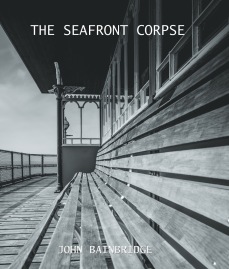Just over a month now to the publication of the sequel to my novel The Shadow of William Quest. The new title will be available for pre-order at a special price a little while before that, so do keep visiting the blog for all the latest news. 
From now until then, I’ll be putting out a few items both about the new book, and the first in the series.
How did it all come about?
I’d long wanted to write a book set in Victorian times, not least because much of the Victorian world is still familiar to those of us living in the UK. As we wander through the streets of Britain we can – if we lift our eyes above the modern fascias on the shops – still see what our Victorian forebears saw.
The same street patterns, by and large, many of the same buildings, and the much of the landscapes they knew. Too much has been lost, and we should be saving what is left, but the Victorian street map may still be traced.
If we could travel back in time, we could enter the world of William Quest – the new book is set in 1854 – with little difficulty. Though there would be some surprises. It could be a brutal world, not as settled as some people have implied. There are many Victorian Values that deserved to be relegated to the history books.
My William Quest is a bit of a reformer. His ideas bore fruit, though it doesn’t always seem like it.
I’ve always been interested in Victorian Britain, since the subject was taught at my primary school. Much of our great literature was written in the 19th century. Reading those classic books plunges back into that world. We are – for good or bad – still little Victorians in so many ways.
I knew some Victorians, of course, though they were all born late in the period. Nevertheless, I remember them well, their attitudes and the way they talked. My grandparents were Victorians, though they were all very young when the old Queen died.
For quite a time, I moved away from Victorian history, into other periods. As some of you will know, I also write historical novels about Robin Hood – Loxley and Wolfshead, with a third book out next year, so I have a passion for the that period. For a long time I’ve had an interest in the English Civil War. I like the Anglo-Saxons too.
The Victorians tended to go on the back-burner.
Then, nearly thirty years ago I became an undergraduate of the Open University, doing an arts course that was almost entirely Victorian. After a couple of years, I went as a full-time undergraduate to the University of East Anglia.
My major was literature, though I did a minor in 19th century social history, some of which looked at the Victorian underworld. It all stayed in my mind, though work pressures kept the writing of fiction at bay. I did, however, write the texts for a series of topographical books about the towns and landscapes of England.
I spent nine years working as chief executive of the Dartmoor Preservation Association, founded in 1883 and very proud of its Victorian campaigning roots.
The Victorians never quite went away.
I wanted to write a novel with a slightly dubious hero set in Victorian times, a kind of Penny Dreadful, the kind of pulp literature of action and derring-do that the Victorians themselves enjoyed reading – though they’d often pretend that their literary tastes were a tad more pretentious.
I’ve always loved such tales myself, and used to hunt them out when I was an undergraduate. They were all good fun, sometimes morally dubious. But a reading of them tells a lot about Victorian popular taste. I go as far as to state that you cannot grasp the complexities of Victorian society if you don’t read them.
While I enjoy the finer works of literature I also worship their slightly more questionable cousins – and that in itself is something I have in common with my Victorian ancestors…
To order the FIRST William Quest novel, The Shadow of William Quest, please just click on the link below. And if you have read it and enjoyed it please do leave a review. The new Quest novel will be available to pre-order in September:

![Wolfshead: The Chronicles of Robin Hood by [Bainbridge, John]](https://images-eu.ssl-images-amazon.com/images/I/51oFN6RExxL._SY346_.jpg)

![Rogue Male by [Household, Geoffrey]](https://images-eu.ssl-images-amazon.com/images/I/51ALOlvaQsL.jpg)